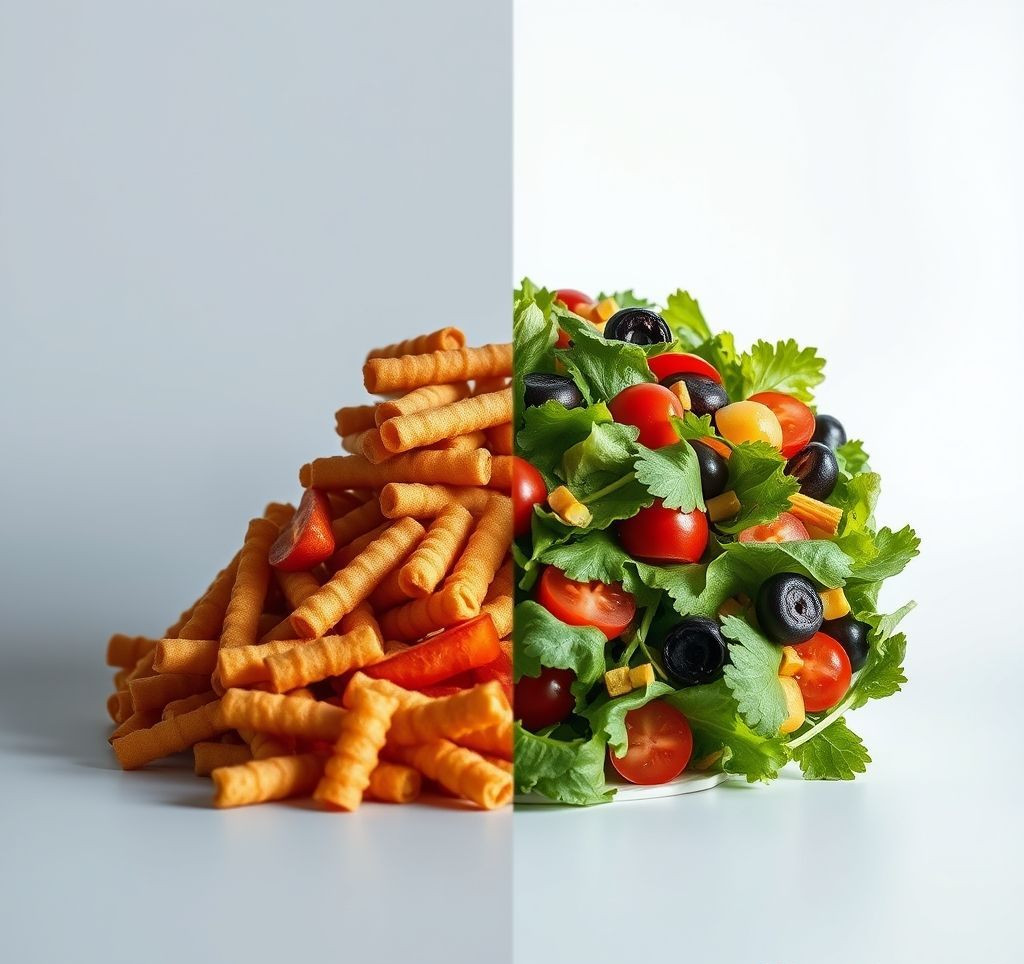Understanding the True Meaning of a Diet
The word “diet” often conjures images of restrictive eating, temporary fixes, and a focus on weight loss alone. However, in its truest sense, a diet is simply the regular course of food that a person or animal eats. It’s a lifestyle, a pattern of consumption that profoundly impacts our health, energy levels, and overall well-being. This guide aims to shift your perspective from fleeting trends to establishing a sustainable, healthy eating plan that nourishes your body for the long term. Moving beyond fad diets is crucial for achieving lasting health.
Why a Sustainable Diet is Crucial
Adopting a sustainable approach to eating isn’t just a dietary choice; it’s an investment in your lifelong health and happiness. Unlike restrictive fad diets that promise quick results but are often unsustainable and can even be detrimental, understanding and implementing a balanced diet offers numerous, long-lasting benefits.
- Improved Long-Term Health: A balanced diet provides the essential nutrients your body needs to function optimally, reducing the risk of chronic diseases like heart disease, type 2 diabetes, and certain cancers.
- Sustained Energy Levels: Nutrient-rich foods provide a steady release of energy, preventing the crashes often associated with processed or sugar-laden foods common in fad diets.
- Better Weight Management: Sustainable eating encourages gradual, healthy weight management through balanced intake and regular physical activity, rather than rapid, often temporary, loss.
- Enhanced Mental Well-being: Nutrition has a direct link to brain health. A healthy diet can improve mood, cognitive function, and reduce the risk of mental health issues.
- Greater Food Enjoyment: A sustainable approach allows for variety and moderation, enabling you to enjoy a wide range of foods without guilt, fostering a positive relationship with food.
Core Principles of a Healthy Diet
To build a truly healthy and sustainable eating plan, it’s essential to understand the core principles that underpin good nutrition. This isn’t about deprivation, but about informed choices that support your body’s needs.
- Balance: Consuming a variety of foods from all major food groups – fruits, vegetables, lean proteins, whole grains, and healthy fats – in appropriate proportions.
- Moderation: Enjoying all foods, including those typically considered treats, in reasonable quantities. This prevents feelings of deprivation and makes the diet sustainable.
- Variety: Eating different types of foods within each food group ensures you receive a broad spectrum of vitamins, minerals, and phytonutrients.
- Nutrient Density: Prioritizing foods that are rich in vitamins, minerals, and fiber relative to their calorie content.
- Hydration: Ensuring adequate intake of water throughout the day is fundamental for all bodily functions.
A Step-by-Step Guide to Building Your Sustainable Diet
Transitioning to a healthier eating pattern requires a thoughtful and gradual approach. Here’s how to start building a diet that supports your well-being.
1. Assess Your Current Eating Habits
Before making changes, understand what you’re currently eating. Keep a food diary for a few days to identify patterns, trigger foods, and opportunities for improvement.
2. Set Realistic Goals
Instead of aiming for drastic changes, set small, achievable goals. For example, “add one extra serving of vegetables to my dinner” or “replace sugary drinks with water.”
3. Educate Yourself on Nutrition Basics
Understanding what constitutes a balanced diet is key. Learn about macronutrients (carbohydrates, proteins, fats) and micronutrients (vitamins, minerals) and where to get them from whole foods.
4. Gradually Incorporate Healthier Choices
Start by making one or two substitutions. Swap white bread for whole grain, or refined snacks for fruits and nuts.
5. Plan Your Meals
Meal planning reduces impulsive, less healthy choices and ensures you have nutritious options readily available.
6. Stay Hydrated
Make water your primary beverage. Limit sugary drinks and excessive caffeine.
7. Be Mindful of Portion Sizes
Even healthy foods can contribute to weight gain if eaten in excess. Pay attention to recommended serving sizes.
8. Listen to Your Body
Honor your hunger and fullness cues. Eat when you’re hungry and stop when you’re satisfied, not overly full.
Expert Tips & Best Practices for Lasting Diet Success
Making a diet change stick is about more than just knowing what to eat; it’s about creating a supportive environment and mindset.
- Avoid Food Rules: Labels like “good” or “bad” foods can create unhealthy psychological associations. Focus on balance and moderation instead.
- Don’t Fall for Fad Diets: Recognize that diets promising rapid weight loss, eliminating entire food groups without medical necessity, or relying on specific products are often not sustainable or healthy. As the Harvard T.H. Chan School of Public Health notes, “The healthiest diets are low in calories but high in nutrients.”
- Practice Mindful Eating: Pay attention to the experience of eating – savoring flavors, textures, and smells – to enhance satisfaction and recognize fullness cues.
- Seek Support: Share your goals with friends or family, or consider consulting a registered dietitian or nutritionist for personalized guidance.
- Be Patient and Forgiving: Progress isn’t always linear. If you have an off day, acknowledge it and return to your healthy habits with the next meal.
By focusing on a sustainable, balanced, and enjoyable approach, you can build a healthy diet that truly nourishes you from the inside out, paving the way for a healthier and more vibrant life.



















